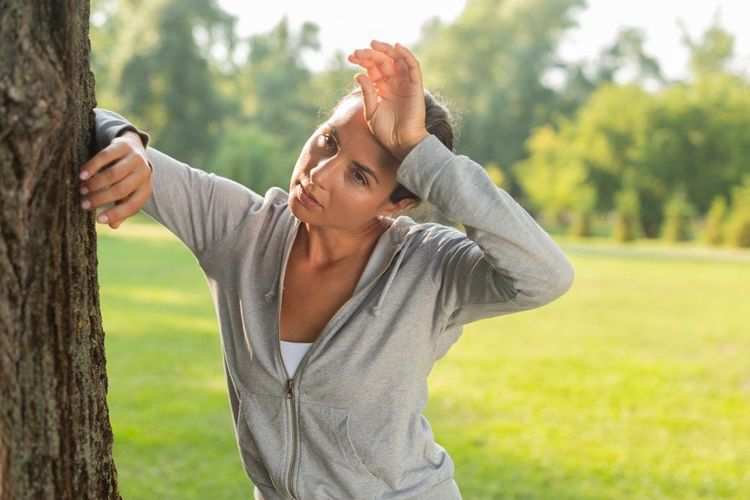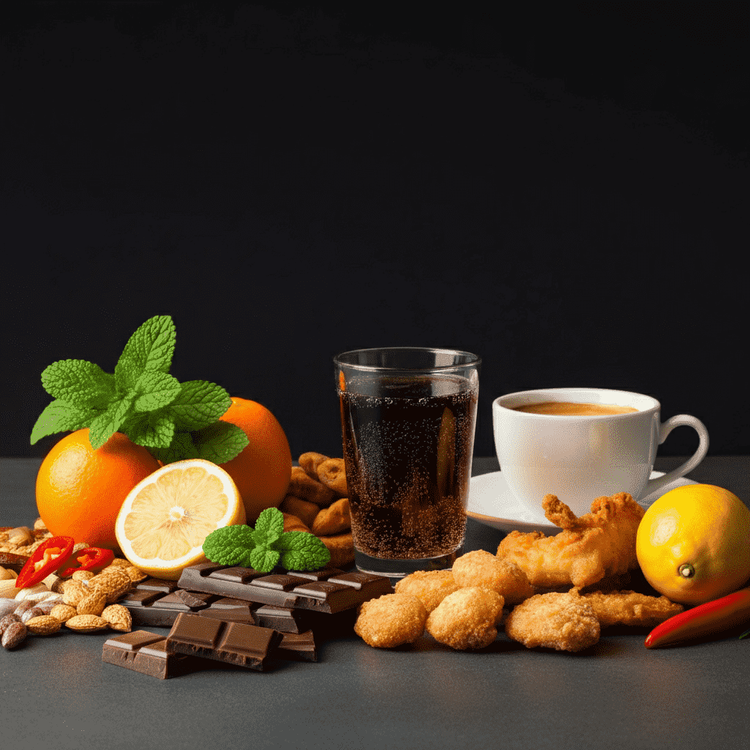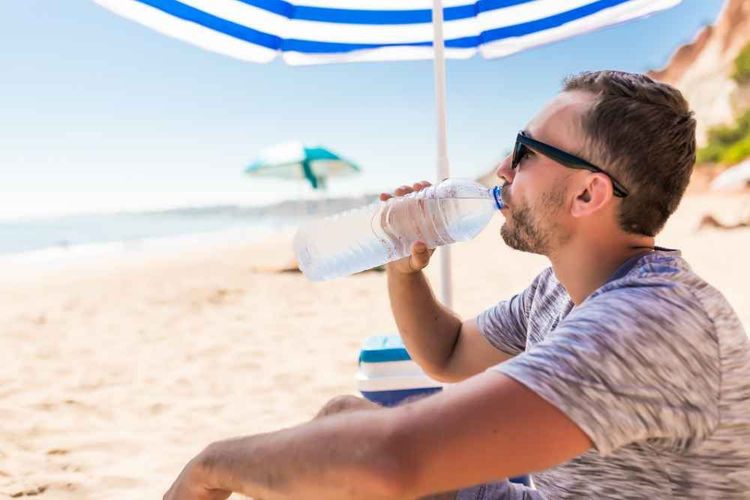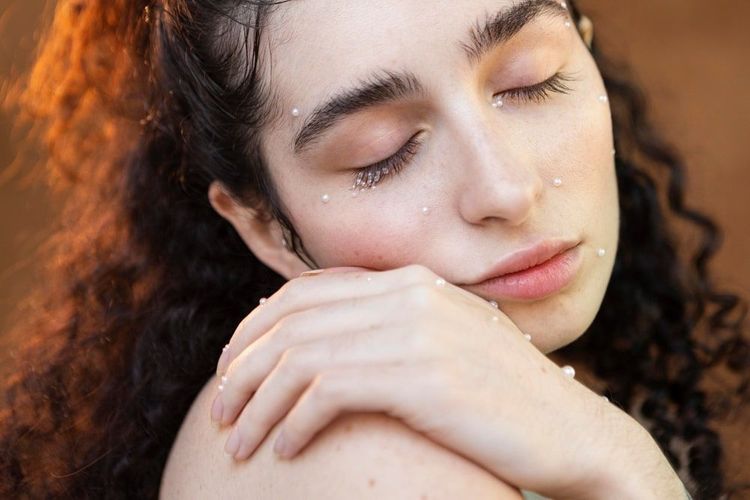Have you ever stepped outside on a hot summer day and felt like you were melting? If yes, you have experienced the extreme heat that comes with heatwaves. Many regions around the world are experiencing more frequent and intense heat waves due to climate change. This can pose a serious threat to your health and well-being if you don't take appropriate precautions.
According to recent studies, the frequency and intensity of heat waves have increased significantly in the past few years, and this trend is expected to continue in the future. So, how can you protect yourself from the harmful effects of heatwaves?
Today, I'll share with you some simple yet effective tips to stay safe and healthy during heat waves. These tips can be applied to everyone, but they are especially important for young children, the older, and those with chronic health conditions. First, let's understand what exactly heat waves are.
What are Heat Waves?
A heat wave is a period of hot and humid weather that lasts for several days or weeks. During a heat wave, the temperature rises drastically and remains above average for an extended period. This can put a strain on our bodies, causing discomfort and sometimes serious health issues. Heat waves can occur in any part of the world and can be deadly if precautions are not taken.
Why is It Important to be Prepared for a Heat Wave?
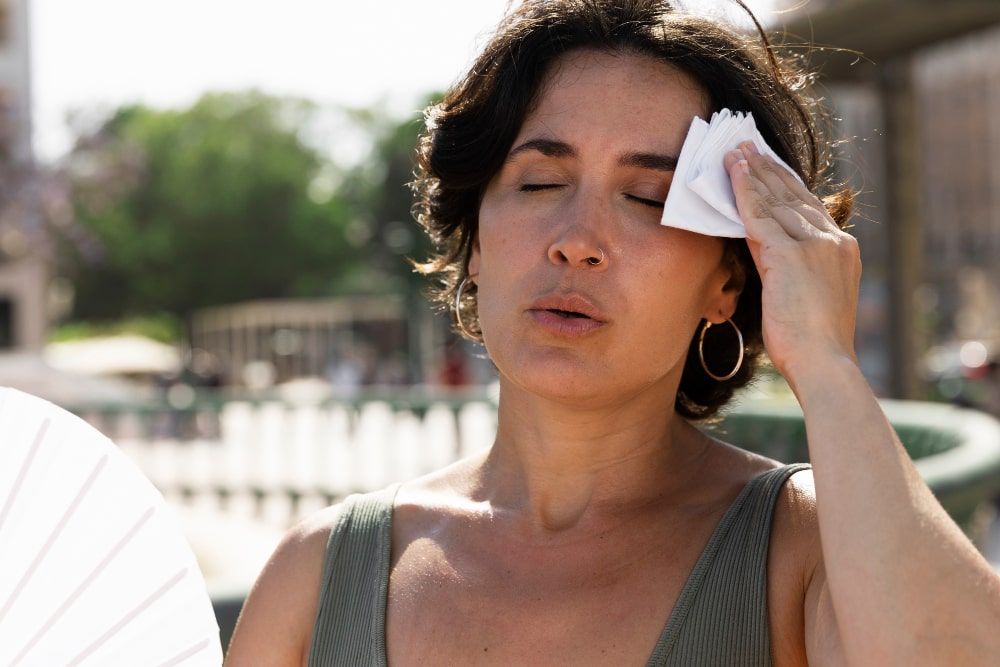
As mentioned earlier, heat waves can cause discomfort or even serious health issues. It is crucial to be prepared for a heat wave to minimize the risks and impacts it can have on our daily lives.
- Protecting our health: Protecting our health: Heat waves can cause heat exhaustion, heatstroke, and dehydration. By being prepared for a heat wave, we can protect our health and prevent these illnesses from occurring.
- Minimizing the risk of accidents: Heat waves can also increase the risk of accidents, such as heat-related car accidents or workplace accidents. By preparing for a heat wave, we can minimize the chances of these accidents happening.
- Preventing damage to our environment: Heat waves can also hurt the environment, such as causing wildfires or damaging crops.
- Supporting vulnerable populations: Yes, heat waves affect everyone, but some groups are more vulnerable than others. For example, the older, children, and those with pre-existing health conditions may be at a higher risk during heat waves.
Stay Cool During Heatwaves
Now that we understand the dangers of heat waves, let's discuss some steps we can take to prepare for them. By following these tips, you and your loved ones can stay safe and healthy during a heat wave.
1. Stay Hydrated
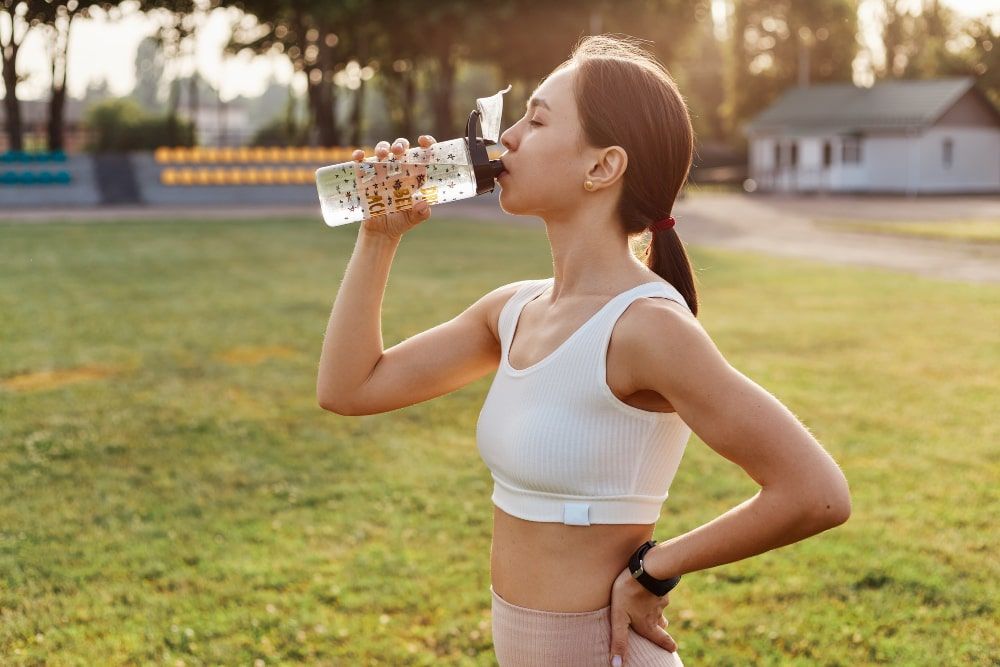
The first and most important step to staying cool during a heat wave is to stay hydrated. Our bodies lose a lot of water through sweating in hot temperatures, so it's crucial to replenish that loss by drinking plenty of water. Avoid sugary or alcoholic drinks, as they can actually dehydrate you even more.
Water is the best option, but you can also consume fruits and vegetables with a high water content, such as watermelon or cucumbers. Carry a reusable water bottle with you wherever you go to ensure that you always have access to hydration.
2. Wear Appropriate Clothing

Heat waves are becoming increasingly common due to climate change, so knowing which fabrics are best for hot weather is essential. You should avoid wearing tight or dark-colored clothing when outdoors in hot temperatures. Instead, opt for loose-fitting, light-colored clothes that allow for air circulation and reflect the sun's rays. This will help you stay cool and reduce your risk of heat-related illnesses. Additionally, wearing a hat or using an umbrella can provide shade and protect your head and face from direct sunlight.
It is equally important to pay attention to the material of your clothing. You should choose fabrics that are lightweight and breathable, such as cotton or linen.
I remember when I was a child, my grandmother would always make sure that we were wearing cotton or linen clothes during hot summer days. That's why I never understood why some people would wear thick and heavy clothing in the heat. But I have come to learn that not everyone is aware of the proper clothing for hot weather, or they may have different cultural practices.
So if you want to stay cool and comfortable in hot weather, it's important to choose the right fabric.
3. Stay Indoors During Peak Hours
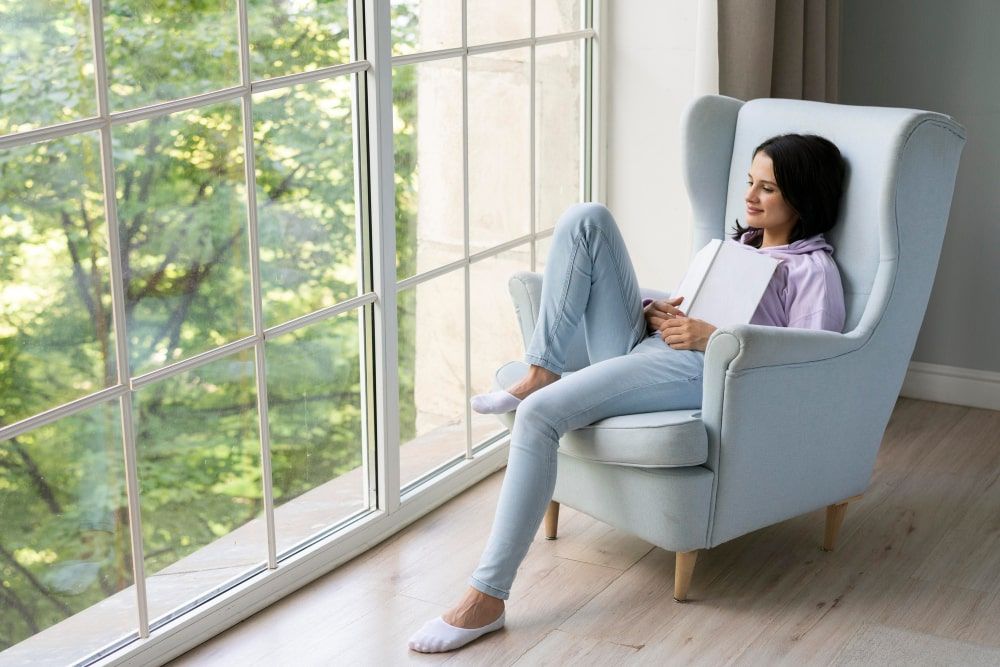
Another best practice for staying cool during a heatwave is to stay indoors during peak hours. This typically occurs between 11:00 AM and 3:00 PM, when the sun is at its strongest and the temperature is highest.
During these peak hours, it's best to stay in a cool, air-conditioned space if possible. If you don't have access to air conditioning, try to find a place with shade or a fan to keep yourself cool.
You can enjoy indoor activities such as reading, watching movies, or playing games to pass the time while staying cool. These activities not only help you beat the heat but can also be enjoyable and relaxing. When the evening cools down, it’s the perfect time to head out for a walk or enjoy some outdoor fun. This way, you can avoid heat waves and still make the most of your summer days.
4. Shower or Bathe in Cool Water

My favorite way to beat the summer heat is by taking a cool shower or bath. Not only does it provide instant relief from the high temperatures, but it can also help to lower your body temperature and make you feel refreshed. You can even add some essential oils or bath salts for added relaxation and cooling effects.
I always make sure to have a cool shower or bath before bed during heat waves, as it helps me sleep better and wake up feeling more energized. So, if you're feeling drained and overheated during the day, try taking a quick cool shower or bath to recharge your body. You will see immediate benefits once you get out of the water.
You may need: Sleep Hygiene Tips for Shift Workers
5. Use Fans and Air Conditioning
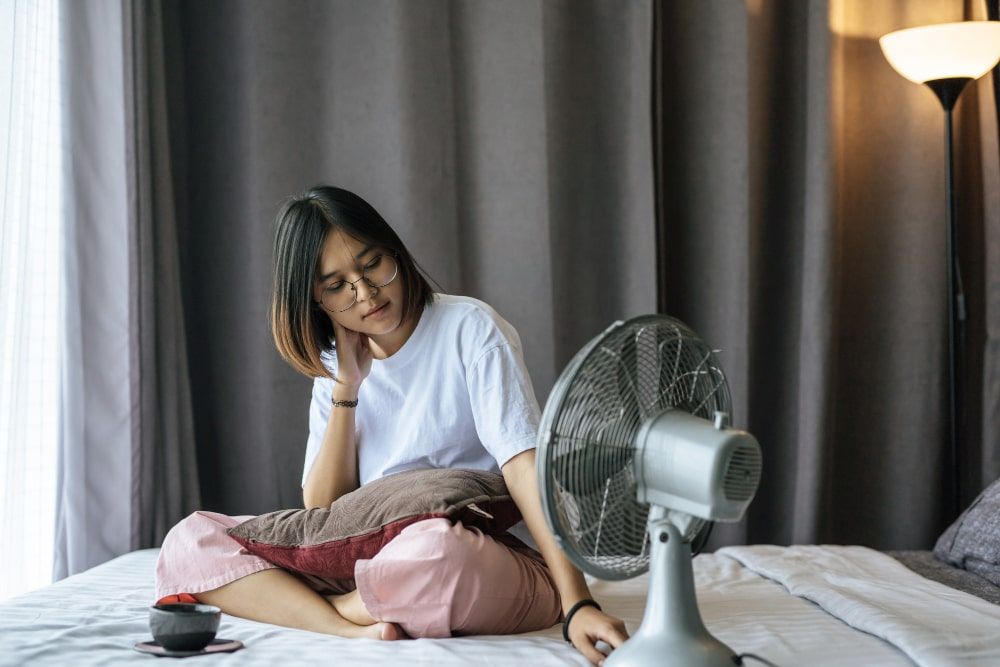
Another effective way to stay cool during a heatwave is by using fans and air conditioning. These devices help circulate the air and cool down the temperature in your home. Here are some tips for using fans and air conditioning to stay cool:
- Make sure your fans and air conditioning units are in good condition before the heat wave hits.
- Consider investing in a portable or window air conditioning unit for extreme heat waves.
- Set your ceiling fans to rotate counterclockwise, as this pushes cool air down.
- Place a bowl of ice in front of a fan for an extra burst of cool air.
- Keep your windows completely closed during the day to prevent hot air from entering the house during heat waves.
- Open windows at night when the temperature drops to let in cool air.
- Keep shades and curtains closed during the day to block out direct sunlight.
- Minimize the use of heat-generating appliances, such as ovens and stoves, during the day.
6. Eat Light Meals
The most basic way to cool down your body is through proper hydration and nutrition. During a heat wave, avoid heavy and greasy meals that can make you feel sluggish and increase your body temperature. Instead, opt for light, refreshing meals like salads, sandwiches, and fruits. These foods contain high water content, which can help keep your body hydrated.
Additionally, they are easier for your body to digest, preventing your body from working too hard and creating unnecessary heat.
Tip: Include hydrating foods like watermelon, cucumber, coconut water, and celery in your meals for an extra boost of hydration. These fruits and vegetables not only provide essential vitamins and minerals but also contribute to keeping you hydrated.
You may like: How to Improve Digestion at Home
My Experience
As mentioned earlier, the best way to stay cool during heat waves is by being prepared and taking necessary precautions. In my experience, I have found that staying hydrated and avoiding direct sun exposure are the most effective ways to beat the heat.
I always make sure to carry a water bottle with me wherever I go during hot weather. Even if I am indoors, I keep a glass of water nearby at all times. This helps prevent dehydration and keeps your body temperature regulated. It's important to remember that sugary and caffeinated drinks may actually dehydrate you, so stick to water as much as possible.
My second tip for beating the heat is to avoid direct sun exposure. This means staying in the shade as much as possible, wearing sunscreen with a high SPF, and avoiding outdoor activities during the hottest part of the day. It's also important to wear loose, breathable clothing that will allow your body to cool naturally.
I have noticed that young children, the older, and those with certain health conditions are more susceptible to heat-related illnesses. So it is important to keep an eye on them during hot weather and make sure they are staying hydrated and cool.
Conclusion
Heat waves can be extremely dangerous and even life-threatening if precautions are not taken. It is important to stay informed about the weather forecast and take necessary measures to keep yourself and others safe during hot weather conditions.
Don't forget to drink plenty of water, wear sunscreen, and avoid strenuous activities during extreme heat. Keep an eye on vulnerable individuals and seek medical attention if you experience any symptoms of a heat-related illness. With these tips in mind, we can all stay cool and beat the heat.
Read More: 7 Easy Ways to Stay Active During Winter
